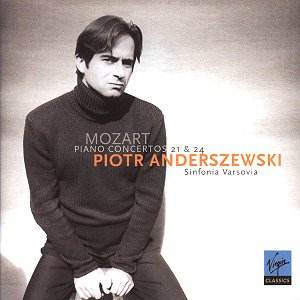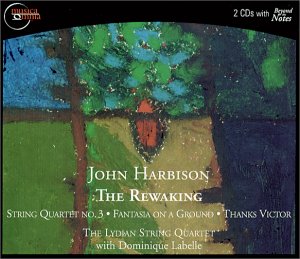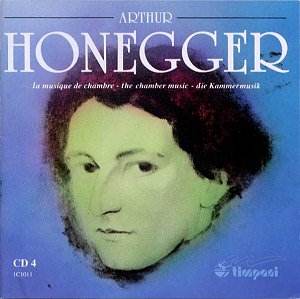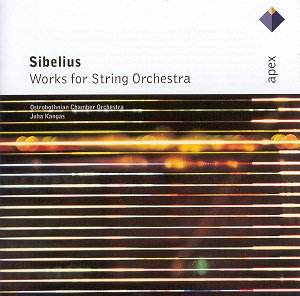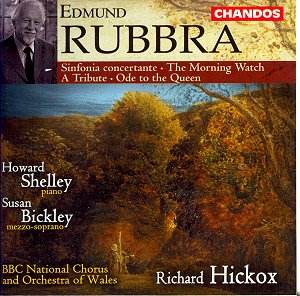 Composer: Edmund Rubbra
Composer: Edmund Rubbra
Works: Sinfonia Concertante, op. 38; A Tribute, op. 56; The Morning Watch, op. 55; Ode to the Queen, op. 83
Performers: Susan Bickley (mezzo-soprano), Howard Shelley (piano), BBC National Chorus of Wales, BBC National Orchestra of Wales, Richard Hickox
Recording: 28 Aug. 1996 (1, 2), 15 Feb. 1994 (3), 25-26 Feb. 1998 (4), Brangwyn Hall, Swansea
Label: Chandos
Edmund Rubbra, a composer often overshadowed by the prevailing tides of 20th-century musical thought, yields a rich tapestry of sound in this recent release from Chandos. His works, particularly the “Sinfonia Concertante” and “The Morning Watch,” reflect a profound engagement with tonality and counterpoint, traits that have both garnered him devoted followers and drawn the ire of modernist critics. This collection of orchestral and choral works provides a timely opportunity to reassess Rubbra’s legacy, especially in light of the historical context that saw his music sidelined in favor of more avant-garde practices.
The “Sinfonia Concertante,” opening this recording, showcases Rubbra’s command of orchestral color and thematic development. From the outset, Howard Shelley’s piano introduces an engaging dialogue with the orchestra, characterized by rippling motifs that evoke a sense of immediacy. The subsequent Allegro explodes with an intensity that is both riveting and masterful in its negotiation of contrasting tempi. Hickox’s orchestral direction demonstrates a clear understanding of Rubbra’s intricate textures, allowing the dialogues between the piano and orchestra to unfold naturally rather than succumbing to an overly dense counterpoint. The second movement, “Saltarella,” is a vibrant contrast—a spirited yet substantial affair, showcasing Rubbra’s ability to blend folkloric elements with classical sophistication. The finale, “Prelude and Fugue,” is a standout, its poignant prelude evolving into a fugue that is both structurally sound and emotionally resonant. The moment when the cor anglais introduces the fugue theme, rising from the C major chord, is particularly memorable, providing an unforgettable interplay of voices.
“A Tribute,” while following closely in the footsteps of “The Morning Watch,” feels somewhat redundant in its thematic exploration. The orchestration is lighter, yet the music does not carry the same weight as the more substantial works on this disc. It is a moment where one might question Rubbra’s need to reiterate ideas that have already been articulated more effectively elsewhere. This raises broader questions about the coherence of his oeuvre: how many variations on a theme can one composer effectively explore before diminishing returns set in?
“The Morning Watch,” however, presents a compelling case for Rubbra’s choral writing, albeit with some reservations. The orchestral opening is solemn and grand, promising a significant thematic development. Yet, as the work unfolds, the choral textures become congested, creating a cacophony that at times obscures the inherent beauty of the lines. Susan Bickley’s mezzo-soprano, while secure and articulate, often navigates a vocal line that seems more suited to a soprano, raising questions about the suitability of the vocal writing. Phrases such as “perfect emblems” ascend to stratospheric heights, but one is left wondering if such climactic efforts are always warranted. The engineering of the recording, while generally clear, struggles under the weight of Rubbra’s dense orchestration, leading to moments where clarity is sacrificed for volume.
The final work, “Ode to the Queen,” does exhibit a newfound clarity and vitality. This piece seems to encapsulate a more mature Rubbra, one who has honed his orchestral palette for transparency. The opening sections shimmer with luminosity, yet the vocal writing still poses challenges. Nonetheless, the overall effect is one of celebration and reverence, echoing the spirit of the occasion for which it was written.
Rubbra’s complex legacy is reflected in the performances captured in this recording. While there are moments of brilliance that warrant attention, particularly in the “Sinfonia Concertante,” there are also instances where his ambition outstrips the resulting clarity of his musical ideas. Hickox and the BBC orchestra deliver a finely crafted interpretation, but the inherent challenges of Rubbra’s dense contrapuntal textures may leave listeners grappling with the balance between richness and obscurity. Enthusiasts of British music will find much to appreciate, but also must navigate the composer’s uneven terrain to discern the true gems among his vast catalog. The “Sinfonia Concertante” emerges as an essential work of the 20th century, while the other pieces provide a valuable glimpse into Rubbra’s evolving voice—one that deserves to be heard and understood in full context.
